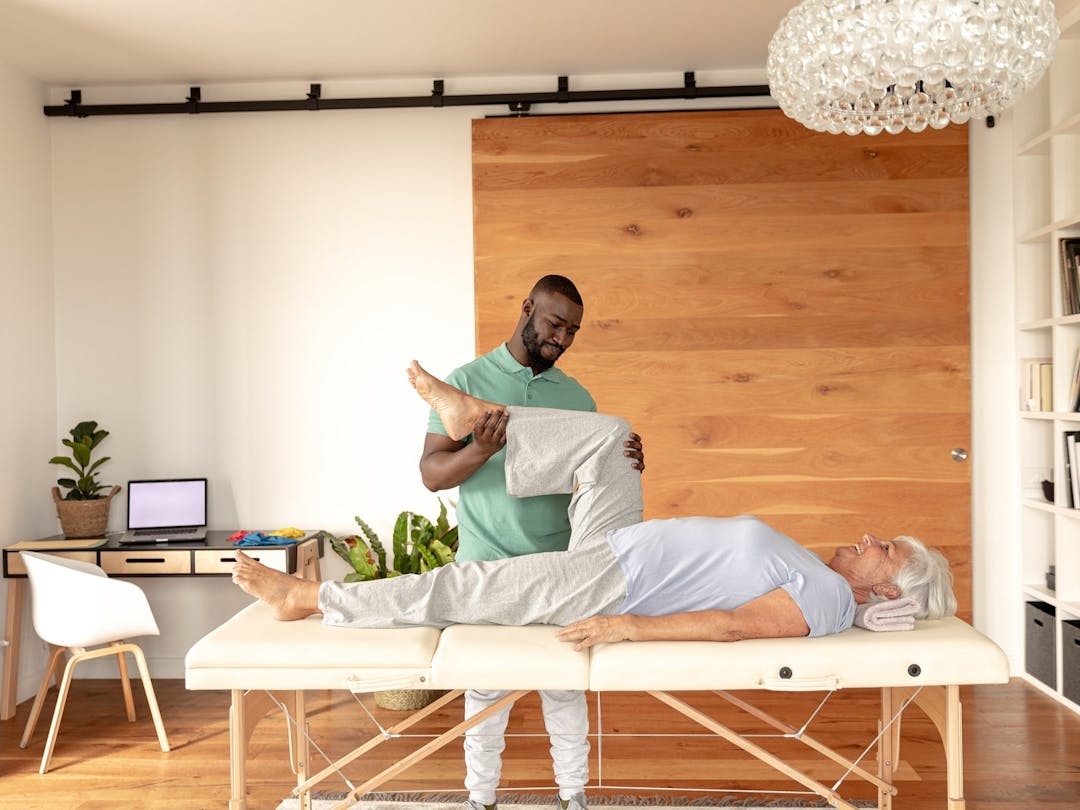
A doctor’s recommendation can raise a lot of questions. Here’s when and how to get a second opinion on your diagnosis or treatment.
No matter how large or small the health issue, you deserve to feel confident about your diagnosis and plan for treatment. And that might mean getting a second opinion — which is likely more common than you think.
Maybe your doctor thinks you need knee replacement surgery, but your friend with the same symptoms just went for physical therapy and is happily pain-free ever since. Or a specialist says you have a rare disease. Or you want to be sure you need to cut out gluten before changing your entire diet.
It’s fair to make sure you’ve gotten all the answers to your questions before you start treatment, so don't be afraid to seek a second opinion. In fact, you could be taking a chance with your health if you don’t.
Find out how Medicare covers surgery.
What is a second opinion?
To get a second opinion, you simply visit another doctor and share the original diagnosis and treatment recommendation. The second doctor will review your medical records and may also examine you or order more tests. The doctor will then tell you what they think you have and how they believe it should be treated.
You can get a second opinion from the same type of doctor you saw or a specialist. For example, if your primary doctor first diagnosed your diabetes, you may go to an endocrinologist to confirm the diagnosis and help plan your care.
If the initial diagnosis was made by a specialist, you might seek a second opinion from another one. In that case, consider going to a different medical practice. You want to be sure the second doctor doesn’t have any qualms about disagreeing with the first one.
Does a second opinion really make a difference?
A second opinion can make all the difference by confirming that you’re getting the right care and boosting your confidence at the same time. It’s especially important to get one if you are facing a major diagnosis from a doctor in an area that’s underserved with lower quality or overly busy medical facilities. Try to get your second opinion from a doctor at a leading medical center, a facility that specializes in your condition, or a research hospital. They can help you get all the tests you need and learn about recent advances and the most effective treatments.
Researchers from the Mayo Clinic found that when people came there for a second opinion, two-thirds (66%) of them got much more information about their condition, and one of every five (20%) ended up with a totally different diagnosis. A study from the Medical University of South Carolina — by some measures, the top breast cancer center in the state — found that 43% of breast cancer patients got a different diagnosis when they went for a second opinion (which often included more testing). In a few cases, the cancer was less advanced than originally diagnosed, but in almost a quarter (23%) of cases, more cancer was found and treated.
Facing a cancer diagnosis? Here’s how Medicare helps.
Isn’t it rude to ask for a second opinion?
You might worry that your doctor will be upset if you question his or her expertise. But there’s nothing rude about taking good care of your health. Some health problems are simple and straightforward, but for many conditions, the diagnosis and treatment aren’t as clear.
“Second opinions are commonplace these days,” Anees Chagpar, MD, MBA, MPH, a breast surgeon at the Yale School of Medicine, told Yale Medicine News. “And just like with any major decision — buying a house or a car or going to college — it’s not a bad idea to go to a couple of places to be sure you know what you're getting and why.”
Second opinions can help you get the best care. Your doctor might even suggest it before you ask. There won’t be any problem if you ask for one — or at least there shouldn’t be. If your doctor doesn’t want you to get a second opinion, that can actually be a warning sign that you really need one!
The only exception is in a medical emergency, in which case immediate care is essential.
Do you need a second opinion?
If you’re not dealing with a medical emergency, there are plenty of times where a second opinion may be helpful:
You feel like something isn’t quite right.
That’s as good a reason as any. If you aren’t sure what you’re hearing sounds right, or you just aren’t getting enough information, it’s fine to see someone else. You’ll need to work closely with your care team, so you need to have confidence in them and feel a good rapport. You can choose to work with your original doctor or the one from your second opinion.
You have been diagnosed with a rare condition.
A condition that’s rare means your doctor won’t see many people who have it, unless the doctor specializes in treating that illness. In this case, you may want to find someone with more experience with the condition to confirm what you have and give you a treatment plan.
Your health insurance requires it.
An insurer may want confirmation that another doctor agrees with the treatment before they cover it.
Your doctor wants more information.
Your doctor might want another opinion to confirm what’s happening and the best approach to treatment. In some cases, your medical tests or images may not indicate one clear path.
You have a few treatment options to consider.
While having choices is great, it can be hard to decide between two or more treatments. Getting more advice can help narrow down the options.
You’ve been diagnosed with a life-threatening disease.
Getting a major diagnosis like cancer is always difficult. Speaking to another doctor can help you understand it better and face it with greater confidence.
You’re thinking about surgery.
Before you go for surgery, it’s worth exploring if there is an option that doesn’t involve an operation. And if the second option says you need surgery, you’ll be more certain.
You’re not responding to treatment.
If you aren’t getting better, try reaching out to another doctor for more ideas. Medicine is changing all the time. There might even be a new treatment that wasn’t around when you were first diagnosed. But be cautious if a doctor presses for a hot new approach that isn’t well tested. That’s where you might even want a third opinion!
Cancer screenings are vital. Learn about Medicare coverage here.
How to get a second opinion — or a third one!
Follow these steps to get the best advice:
A. Check with your insurance company. You might need a referral from your primary care doctor for the visit to be covered. Ask if the doctor needs to be “in network” on your plan for the visit to be covered.
B. Find the doctor. Ask your doctor for a recommendation, or ask friends and family about good experiences they’ve had. Talk to a related medical professional, such as a dietitian or physical therapist. They hear about which doctors get the best outcomes. Consider going to a doctor at a leading medical center or research hospital.
C. Ask for a copy of your medical records, including the treatment plan. You may not need to ask your doctor yourself. Many practices have a medical records department that can send these directly to the second doctor.
D. Write down your questions to take with you. Organize your questions before you go. Be sure to ask about the treatment options and the pros and cons of each one.
E. Pick who you want to work with. If the second doctor agrees with the first, sometimes you can ask the two doctors to work together, but it’s more common to pick one. You can pick whichever doctor you prefer. Confirm that your insurance will cover treatment with the doctor you pick.
F. Make sure you feel confident. If you get a completely different opinion the second time around, you should get a third opinion — and it should be covered by your insurance. Make sure you have peace of mind that you have the right treatment plan!
How Medicare can help
Medicare Part B helps cover a second opinion when a doctor recommends that you have surgery or other major procedure (unless it’s excluded, like cosmetic surgery). A third opinion is covered if the first and second opinions are different. If you have Part B and Original Medicare, Medicare pays 80% of the Medicare-approved amount.
Since it covers everything Original Medicare covers, Medicare Advantage also covers a second opinion — and a third opinion if the first two opinions differ.
Covering second opinions doesn’t guarantee that the treatment will be approved by either Original Medicare or an Advantage plan, though, so always be sure to check before you proceed. For help finding a plan that fits your needs, give us a call or check out our easy-to-use Find a Plan tool.
Additional resources
- Centers for Medicare and Medicaid: Getting a Second Opinion Before Surgery
- WebMD: How to Ask for a Second Opinion
- Yale Medicine News: Can a Second Opinion Make a Difference?
- Patient Advocate Foundation: Second Opinions
- Medicare.gov: Find & compare providers near you
Mon-Thur 9am-7pm | Fri 9am-6pm EST



